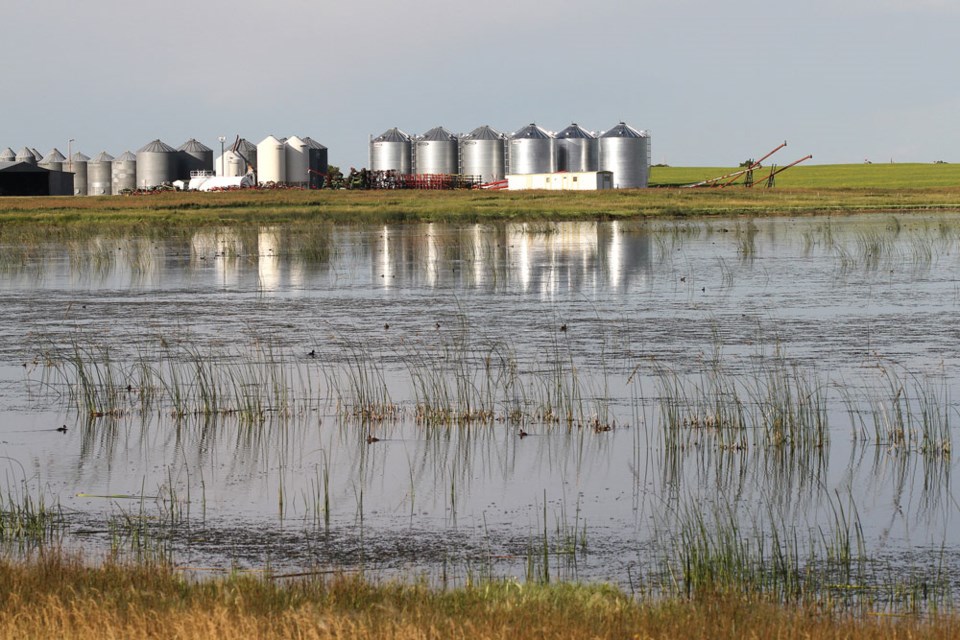During the cold, short days of winter on the Prairies we rarely think about wetlands. They are frozen and covered with snow, there are few obvious signs of wildlife activity, and our thoughts are elsewhere at this time of year, especially during the COVID-19 pandemic. But as the days get noticeably longer and we look forward to spring, we can also recognize and celebrate World Wetlands Day.
ÌýWorld Wetlands Day is celebrated around the world each year on February 2nd in recognition of the anniversary of the signing of the Convention on Wetlands of International Importance in Ramsar, Iran, on 2 February 1971. This year is the 50th anniversary of this historic signing and the theme for 2021 couldn’t be more fitting: Wetlands and Water, Inseparable and Vital to Life.
Over the decades, Saskatchewan has seen many landscape changes, and unfortunately, many of these have resulted in lost wetland benefits. Saskatchewan does not have a wetland inventory and is the only Prairie province without a wetland policy.Ìý
ÌýThere have been positive developments of late, and signs that Saskatchewan is moving in a direction that identifies the importance of these vital resources to the people of our province are favourable.
ÌýThe formation of the Global Water Futures Program (GWF) is one promising example. GWF is a University of Saskatchewan-led research program that will deliver risk management solutions to manage water futures in Canada and other cold regions where landscapes, ecosystems and the water environments are changing as a result of global warming.
Under the GWF umbrella, Prairie Water works to address pressing concerns specific to the Canadian Prairies, such as water availability, aquatic ecosystem health, and water management practice and governance. Results from ongoing research efforts of GWF and Prairie Water will be important to the people of Saskatchewan and will help with efforts to develop a provincial wetland policy.Ìý
ÌýThe value of water to all living things is recognized, but other aspects of prairie wetlands are also worthy of our appreciation. Wetland plants provide homes and feeding places for many species. Wetlands filter and purify water and fight climate change by storing carbon in the soil. Wetlands also reduce the impacts of flood and drought.
To this end, Ducks Unlimited Canada maintains that we need wetlands now more than ever. Developments resulting in the loss of wetland benefits should follow a true mitigation sequence to avoid harm to wetlands where possible, reduce impacts to wetlands if avoidance cannot be achieved, and finally, as a last resort, compensate for wetland loss. Compensation includes restoration to capture lost environmental benefits; wetlands must be replaced with wetlands.
ÌýAs recent initiatives in Saskatchewan promise to help move our province toward the implementation of a wetland policy, there is cause for hope: hope that by truly mitigating for development and conserving remaining wetlands, we can help address the impacts of climate change, enhance biodiversity, and prosper from the positive economic spinoffs of sustainability, resulting in improved public trust and increased market access.
With hope and anticipation, we look forward to celebrating a beneficial wetland policy for Saskatchewan on World Wetlands Day 2022.
ÌýMichael Champion, PAg – Head of Industry and Government Relations
Ducks Unlimited Canada – Saskatchewan




